Text










Fahlada and Earn
The secret of us series last episode.
#tsou#the secret of us the series#thesecretofusbts fahladaearn#last episode#wlw#orm kornnaphat#lingling kwong#lingorm#fahlada x earn#the secret of us#tsoulastep#ใจซ่อนรักตอนจบ#LINGORM TSOU FINAL EP
135 notes
·
View notes
Text
The Root (2022)

A couple months ago, when I first started working on my project exploring the early history of Thai sapphic representation, I came across a mention of The Root: one of the first shows to air on Channel 3 (a major television channel) to feature a sapphic main character.
The Root premiered only a month before GAP, which meant that it was technically "ahead of its time" in "some sense." Why then, I wondered, was no one talking about it?
I scrolled down on the MDL page for the show to read some of the reviews and top comments, and oh:
Disgusting display of LGBTQ RELATIONSHIPS This series is a conservative propaganda film on LGBTQ relationships...LGBTQ relationships [in the show] are framed as... predatory and manipulative [which is a] conservative narrative... [that is] plainly stupid. DISGUSTING!! Lesbians SKIP THIS DOG SH*T!!
That's why.
As a result, I took a break from thinking about the series for a bit, and decided to return to it a little later. I was curious about what this piece of media looked like, and how it fit into my understanding of what was going on in the entertainment industry in the early 2020s.
How could The Root and GAP overlap timeline-wise, when they had such different approaches to queer representation? The very idea that both could be on air at the same time seemed so incongruous.
Also, I was interested in other questions, too. Why was The Root made? What connections did/does it have to both currently active players in the QL industry, as well as to older, more troubled pieces of representation from the 60s and 70s?
Originally, I was going to cover The Root alongside two other shows that also premiered in 2022, but after watching the series, I decided that it deserved its own post. So, I've separated everything out into two sections.
The first, this one, will cover The Root alone, including a background of the show, its connection to queer films and novels from the late 1900s, criticisms of the work, and my own personal thoughts. The second will cover The Root in conjunction with GAP and Love of Secret to explore what was going on with Channel 3 in 2022, especially in terms of sapphic representation.
TW before proceeding: mentions/discussions of homophobia, discrimination, grooming, threats of self harm/suicide, violence and harm towards others, abuse, rape, SA, and predatory behavior (the show contains discussions of some very sensitive topics, so please take care before reading this post or before choosing to watch the series. In terms of the content of this post, most of these subjects are not discussed in explicit detail.)
Lastly, I should also mention that this post is a little long- just to give everyone a quick heads up.
Background and Previous Adaptions
The Root is an adaption of the 1971 book, Rakkaew, which was written by the novelist Krisna Asoksin. Krisna won the S.E.A. Write Award in 1985, and was named a National Artist in literature in 1988. According to her Wikipedia page, many of her novels often focus on topics surrounding family or domestic drama, as well as social or political themes.
Rakkaew has actually been adapted twice: first as the film Pitsawat in 1987, and secondly as drama The Root in 2022.
As far as I can tell, all three works have aspects of the same basic structure- though they also have some key differences to each other, which I'll touch on a little bit later.
In terms of The Root, the show follows the story of a young girl named Roithongsai (nicknamed "Sai"). Placed under the care of an older woman named Rangrong (nicknamed "Rong," but I'll use her full name in this post just to hopefully make things a little clearer/for differentiation's sake), Rangrong raises Sai from a young age and behaves in a predatory way towards her (throughout the series, it's articulated how Rangrong acts more like a lover towards Sai, rather than a parental figure or an older sister).
Trying to exert control over Sai's life, Rangrong will stop at nothing to make sure she stays with her (including resorting to tactics related harassment, manipulation, and violence)- even as Sai tries desperately to escape.
Story
In The Root, we're first introduced to Sai in an intentionally disorientating way. She's shown frantically buying tickets at a busy bus stop, trying to sneak onto the bus without anyone noticing her. As she keeps glancing back at the station, Sai seems clearly aware that someone has been following her.
Although she does her best to disguise her appearance and prevent anyone from tracking her down, the bus is eventually stopped en-route by the police, and they end up catching her.
It turns out that Rangrong (Sai's guardian and adoptive older sister) has sent her driver to track Sai down while she's trying to escape, telling him to behave as if he's her father who looking for his daughter who has run away from home. Armed with a fake medical certificate, Rangrong's driver claims that Sai is mentally ill and a compulsive liar. Thus, her protests that he isn't actually her father aren't believed, and Sai is surrendered back into Rangrong's custody- despite being above the age of majority.
This section of The Root hints at the structure of the rest of the show, while also underscoring how powerful and manipulative Rangrong is- as well as how difficult it is to escape from her. Despite Sai's desperate attempts to be free, Rangrong's wealth and influence makes it easy to gain control over the authorities, to cut off Sai's access to any escape routes, and to any avoid threats of punishment or legal action. Dealing with such a influential and relentless person, the show spends much of its runtime focusing on Sai's escape and the process of taking Rangrong down.
Moving on from this initial opening framework, as the series progresses, we learn more about the evolution of Sai and Rangrong's relationship- as well as Rangrong's background.
Sai first came came to live with her when Rangrong's father was still alive. Since Sai came from a poorer background, Rangrong's father offered to adopt her at a young age- providing Sai with a better life while also supporting her other siblings. In turn, he secretly hoped that he could raise Sai to be an obedient child that would later become a good future wife to Ekkarat (his son and Rangrong's older brother).
After Rangrong's father's death, Sai passes into the care of Rangrong. Because of the substantial age gap between the two of them, Rangrong was involved in raising her. During this time period, although Sai only viewed Rangrong as an older sister, Rangrong fell in love with her. The characters' ages are never specified during the flashback scenes where everything is revealed, but it's strongly implied that this happens while Rangrong is an adult and Sai is still a minor. Thus, the series has been criticized for its portrayal of topics such as grooming.
One day, when Sai is older (now a university student), Rangrong sexually assaults her, touching her inappropriately and kissing her without her consent. Sai feels incredibly violated by this, and struggles with the lingering effects of what she's physically went through, and well as the sense that one of the closest people in her life (essentially one of her family members) has betrayed her.
Despite knowing that Sai hates her for what she did, Rangrong continues to pursue her. Possessive, manipulative, and at times delusional about what she's doing to her, Rangrong will stop at nothing to get her back (including resorting to harassment or violence).
Queer Representation, Homophobia, and Conservative Narratives
Now that I've covered the basis of the show's story, I think it's definitely not an understatement to say that the plot lines present in The Root could be considered incredibly problematic.
Although queer people are not exempt from being groomers or predators, there is a long history of LGBTQ people as being portrayed as dangerous, manipulative, or sexually aggressive in media. This often stems from beliefs that queer people are inherently deviant, wicked, or immoral. Framing queer people in this way can reinforce negative stereotypes: an article by Fiveable notes that
"When films depict LGBTQ+ characters as dangerous or manipulative, it fosters fear and misunderstanding among heterosexual audiences. This misrepresentation can lead to increased discrimination and violence against the LGBTQ+ community, as it plays into existing prejudices and societal fears."
Channel 3's choice to air a show with this plot line is especially concerning given the fact that at this time there were not very many mainstream shows with sapphic main characters.
More had started to emerge in the mid-to-late 2010s, such as Club Friday Season 7: Online Love, which aired on GMM25 in 2016, but for the most part (especially compared to what was on air at the time) there were comparatively few. Some of the small number of shows that did, such as Rak Kan Panlawan (2017) (which is one of the only other dramas with a sapphic main character that aired on Channel 3 before GAP), also did not always feature endgame same-sex relationships (for instance, Toon, one of the leads of RKP, starts off the series dating women before swearing off them completely and deciding to only pursue men after a series of heartbreaks).
So to have The Root be one of the first to appear on Channel 3- and to be possibly some people's first encounter with seeing a queer main character in a major lakorn- is... just not a good look (to put it lightly).
There are some other ways that the portrayal of Rangrong's character could be considered offensive, too.
Later in the series, it's revealed that another character (Rangrong's former friend and current business rival), Li, had almost an obsessive level of interest in/desire for her.
In a flashback from when they were younger, it's shown that Li kissed Rangrong without her consent- this time in a scene that mirrors the same positioning and cinematic framing of Sai's assault. As a result, at times Rangrong has been both the victim as well as the instigator of unwanted physical contact, kissing, and touching.
In the present day, Li continues to pursue Rangrong, despite her sense of disinterest. Li points out Rangrong's hypocrisy in doing the same thing to Sai was done to her, and that had so deeply hurt her in the past). She also calls out Rangrong's (at times) delusional approach to the world.
Narrative-wise, although Li's relationship to Rangrong was perhaps meant to serve as a parallel to the primary plot of the show, it's disappointing that both of the sapphic characters in The Root were portrayed as initiating or engaging in unconsensual acts. This is definitely problematic in terms of queer representation.
What's going on is very complicated, though, because Rangrong has also been sexually assaulted by men- in particular by her ex husband, Wut. Wut was extremely violent and abusive towards her, especially up until her escape from him. In fact, all of the men in Rangrong's life have failed her- her father treated her badly, and her brother Ekkarat refused to intervene or take her seriously when Rangrong begged him to help stop her ex husband's abuse.
One of the reasons why Rangrong perhaps latched onto Sai so much and fell in love with her is because Sai was one of the only people who was willing to defend her, despite still being a minor at the time (this is the reason that's implied in the show).
As a result, because of her previous experiences, Rangrong has developed a hatred of men. In episode three, she confronts Sai over her relationship to a man, Din (someone who helps Sai escape from being under Rangrong's influence, and who also serves as her love interest).
During their conversation, Rangrong commands Sai to stay away from Din. She declares that:
"I will never let you date any man even if you don't like women. You life belongs to me. Got it?" (EP. 3, 1:06:29)
Thus, tied alongside Rangrong's desire for Sai is also a fear of her being "corrupted" or mistreated by men.
Lastly, towards the back half show, it's revealed that Rangrong might have some mental health issues. It's revealed that she takes pills and that without them she struggles from hallucinations. As Rangrong's actions have gotten increasingly more dangerous and manipulative over the course of the series, Sai purposefully throws out her pills, causing her to spiral.
Gradually, Rangrong starts to exhibit more aggressive behavior. Recording the various violent acts she's committed and showing the videos to her company's board of directors, Sai leverages this as proof in order to remove Rangrong from her position as CEO. In doing so, Sai thus reduces her sense of power and influence: making it so Rangrong can no longer control her anymore.
At the very end of the series, Rangrong ends up in a hospital to receive mental health treatment. This makes sense within the overall context/narrative of the show because of Rangrong's previous erratic and aggressive behavior (and is a choice that she herself is actively involved in making), but this is also not necessarily great- especially for such a plot line to be featured on a mainstream series with such massive reach. [1]
To recap, this brings us to three major stereotypes that Rangrong's characterization potentially touches on (and definitely exists in the wake of), including the ideas that:
Queer women hate men and/or are not attracted to them due to previous traumatic experiences
Queer people are pedophiles, groomers, and/or have inappropriate relationships with younger people
Queer people had mental health issues and/or are inherently mentally ill
As a result, it's no wonder why the series has been labeled as a conservative piece of propaganda- it definitely shares many similarities to different discriminatory beliefs or talking points.
Thai Sapphic Representation in the 1970s
I thought it might be interesting to go back and frame The Root within the context of the 70s (the decade of the publication of its original source material), and what was going on in terms of sapphic representation at the time. I think this might provide some clarity as to why the show is the way it is.
According to Sanchai Chotirosseranee and Atit Pongpanit's paper "Thai Film Archive and Early Thai Queer Cinema" from The Routledge Companion to Asian Cinemas, depictions of queer characters as evil or deviant began to pop up more in films made after the 1970s; reflecting a shift in social attitudes that started in the 1960s. Thus, Rakkaew was written at a time where some of these ideas were widely circulating.
Even earlier than that, following the end of World War II, medical discourses surrounding the negative treatment of homosexuality had begun to make their way into Thai novels. According to Wanna Numun's article, the Significance of Homosexuality in Thai Society:
"Some writers such as Anchan in writing Nang Aek borrow Charles Socarides’ approach that homosexuality is a mental illness originated from an emotional abuse in childhood" (pg. 162)
While I'm not sure if this belief might have influenced the construction of the novel, there were already previous literary connections being made between queerness, mental health issues, and abuse.
What's going on The Root is a little different (i.e. in that these issues are complex/operate in different several ways), but one could argue that there's a somewhat uncomfortable level of connection that's been established in the show between all three (more of an implicit setup that draws off of already existing prejudices).
Moving onto films from the 70s, depictions of queerness from this time period were also troubled. Notably,
"Female homosexual characters were also portrayed as deviant and violent in several films... In Hua Jai Tee Mai Yak Ten (Weary Heart, 1977), a female English tutor has a secret relationship with her lonely female student. She finds out later that the student is having an affair with her brother’s boyfriend. The teacher shoots both of them dead and later turns the gun on herself. Similarly, in the last scene of Wai Rean Pean Rak, a lesbian comes to her former girlfriend’s wedding with a gun to kill the couple before losing her mind. In the low-budget comedy film Hor Sao, one scene shows a lesbian character pointing a gun at her girlfriend when the girlfriend is about to leave her for a man. A plot device in which female and male homosexual characters commit sexual harassment is a repetitive trope in Thai films. In the prison drama Khung Pad (The 8th Prison, 1974), the film portrays a women’s penitentiary in which the female protagonist faces a sexual threat from a lesbian inmate" (pg. 538).
Somewhat similarly to Wai Rean Pean Rak or Hor Sao (but not totally), The Root also features a wedding crashing scene. This happens during Sai and Rin's wedding, where Rangrong points a pair of sharp scissors at the couple. She then threatens to kill herself, behaving extremely erratically. During this segment, she asks Sai:
"What can't you be with me? Why ... Why did you choose him? Why did you choose a man? Are you afraid that people will consider our love bizare?" (EP. 12, 1:03:44)
In other sections of the series, plot lines surrounding Rangrong's violent, vengeful nature are played out, too: for instance, she's implicated in the deaths of both her father as well as Sai's biological father- letting them pass away by refusing to call for medical attention when they needed it (it's important to note that some of these deaths, like her father's, are out of hatred, protection, and revenge, since Rangrong disliked the way that he treated both her and Sai).
To me, there's an eerie sense of crossover between some aspects of these films from the 70s and The Root, almost as if they're conceptually playing out the same tropes and the same scenes. One might argue, that in some sense, The Root is really stuck in this period from the past- more at home with films from the 70s than those from the early 2020s (though disappointing portrayals of queer characters are not exclusive to either period).
But because The Root aired in 2022, I feel like it also (possibly?) resists this sort of labeling or categorization- one could also challenge (to some extent) some of the narratives surrounding the series' conservative nature.
Contradictions, Complexities, and Counterarguments
Not all queer characters in the show are demonized- some, like Sai's biological younger brother (Rakchart), are treated with empathy and understanding.
After Sai and Rangrong learn that he's been bullied by some of his family members (including his brother and his father) for not being "manly enough" (he was caught with a tube of lipstick), as well as for being gay, they both defend him.
In a conversation in episode one, Rangrong tells him,
"Listen Rakchart. You're not wrong for being gay. You are you. You're not wrong for being different. You're not a bad person. You're not doing anything wrong. Do you understand?" (EP. 1, 18:39).
She later helps put a stop to the bullying. Similarly, Sai also comforts Rakchart, and we later learn that she's the one who has helped provide him with the lipstick in the first place.
Over the course of the show, Sai articulates several times that her dislike for Rangrong has nothing to do with her sexuality. For instance, in episode nine, she says:
"In the past...I believed that [Rangrong] was a sister. I don't hate the love that...women give each other. But what she did to me was like being assaulted by a family member. [That's why I don't want to go back to her]." (EP. 9, 11:55)
There's also a surprising lack of explicit homophobia in the series- except for one minor encounter towards the end of The Root (one which doesn't go unpunished), Rangrong and Li are never insulted, looked down on by other characters, or unaccepted solely because of their sexuality. There's rarely any specific, targeted instances of derogatory language being used to refer to them.
It's hard to express fully the vibe of the series/what's going on here to those who haven't watched the show, but I think it's definitely important to be clear that there's some ways it might escape certain, more totalizing generalizations.
For instance, Li is given a moment in episode eight to express the amount of discrimination that queer people often face in society.
She says that:
"Sai's dad was of the older generation. Parents of that generation usually don't accept the love that isn't between men and women. No matter how open society is to other types of love, there's still no equality. Those who aren't straight are hated no matter what." (EP. 8, 1:00:53)
Honestly, the placement of this line of dialogue within the series is a little off/uncomfortable to me (especially during this particular point of time in the story, where it's used somewhat to contextualize/explain Rangrong's actions), but I think it would be remiss not to mention that The Root does (at least partially) touch on the topic of discrimination (even if a little bit iffy).
Moments like this underscore why it can be so hard to sum up the show, or to try to place it totally in one particular box. So many of the characters are complex- Sai's father, for instance, is a homophobic old man who says hurtful things to her younger brother, but he also supports Sai when she's in danger. Li treats some characters, like her brother's wife (Charawee) badly, but we later may feel (to degree) that her dislike of Charawee is justified once we learn that she's actually trying to manipulate him.
At different points in time, Rangrong has been both a victim and an perpetrator. Even characters that we should theoretically be rooting for, such as Din, are unlikable at times- although he helps Sai and protects her a lot, sometimes he displays instances of red flag behavior (such as being aggressive, possessive, or demanding towards others).
Because almost all of the characters have complicated backgrounds and histories, I feel like- to some extent- it can be hard to 100% pin down people like Li or Rangrong solely as flat, walking stereotypes, especially when the straight characters in the story also have demons, and exhibit similar behavior/character traits at times (i.e. also being violent, manipulative, or obsessive). Maybe I'm being a little bit too generous here, but I think it's important to acknowledge that this show has a lot of complexity, and to open up the space to different counterarguments (whether you might totally agree with them or not).
As much as The Root has a connection to the 70s, it can also be situated within other contexts, such as certain literary lineages or lakorn-based categorizations.
From reading descriptions of some of Krisna's other works, such as her 1970 novel Sawan Biang, it seems like it touches upon some similar topics, such as rape/SA, inappropriate relationships between pseudo-family members, and revenge. So, these subjects weren't limited to her stories that only featured queer relationships- they were also present in ones with straight relationships, too [2].
In addition, it seems like some changes to original story may have been made when adapting the novel. According to an article by The Standard, it seems like Rangrong's bad experiences from marriage as well as the abuse she suffered were expanded upon specifically for the series.
Also, the article mentions that both the book and the previous film place more of an emphasis on family upbringing. In the novel, Sai's is "a 'lost child' [without any biological family members/roots] confused by the definition of love in both family and romantic terms- leading her to express herself by being wayward and self-centered" (thanks to @arminthada for recommending me this source and helping me with the translation- appreciate you so much!).
Depending on how both these things were expressed in Krisna's work, they may either support or complicate different homophobic stereotypes or tropes. This is why dealing with the series is so challenging, too- it's hard to tell without reading the original source material what changes may have been made for the better or worse, or which ones were incorporated in slightly different ways.
Lastly, I think it's also important to situate the show within the context of other ongoing productions. The Root was actually produced by Change2561 (the same production company who made Pit Babe), which led one commenter to write in an older, circa 2022 forum post:
"Now that I've typed this far, I want CHANGE to make an LGBT story with a happy ending, without forcing psychotic villain roles onto LGBT characters. I believe they can do it if they actually want to." (credit to @arminthada for recommending this thread; comment was created with the help of some translation tools)
(something which is incredibly ironic in retrospect)
To be a little fair, like what was going on with Krisna, it's worth it to acknowledge Change was also producing a lot of other lakorns around this time period with similar topics/themes, including ones containing instances of manipulation (The Wife, 2022) revenge (Krachao Seeda, 2021), predatory relationships, and SA/rape (Bad Beauty, 2022). So, again, the plot lines expressed in The Root weren't exclusive to only Change's queer productions- one could perhaps argue that they were present in other straight ones, as well [2] (although that doesn't excuse it completely).
However, that being said, it's also absolutely imperative to recognize the specific harm that may have been caused by The Root- especially with of how it intersects with different homophobic beliefs and stereotypes, and also because of how it was one of the first shows with a queer female main character to reach a major mainstream audience via Channel 3.
It's very difficult to get over the notion that it might have reinforced negative stereotypes surrounding lesbian and sapphic women, which is especially disappointing given its position in terms of queer television history [3].
Connections to the Current GL Industry
All this (The Root airing on Channel 3) was also happening around the same time that GAP had first begun to appear on TV (both shows overlapped by a span of 11 days).
I'll cover the dichotomy between the two shows in an upcoming post, which grapples with different concurrent expressions of queerness in 2022, but for now, it's worth it to mention that the show also has some surprising connections to the GL industry.
S Vorarit (of Pit Babe fame) as well as Chod Saithip (both of which are associated with Change, and whom have served as The Root's executive producers), have been involved in numerous different shows that've featured sapphic representation, such as Club Friday Season 8: True Love...Or Hope (2017), Club Friday Season 11: Love Crosses the Line (2019), Affair (2024), and Harmony Secret (2025) (like what the commentator hinted at earlier, I haven't always heard very good things about some of these pre-2024 shows, but that's perhaps a conversation for another day).
Koo Ekkasit, the series' director, previously worked on several other shows featuring queer characters, such as Club Friday Season 6: Changed (2015), Club Friday Season 8: True Love...or Confusion (2017), and The Fallen Leaf (2019). In 2020, he would go on to direct Tonhon Chonlatee, and he's also slated to work on the upcoming GL series No Romeo.
In addition, Kao Supassara, who played Sai, started in one of the first-ever GL series, Love Songs Love Stories: Pae Jai (2015). She also will play one of the leads in the upcoming show Love Design.
Please don't bother the people mentioned above, as it's possible that they may have had numerous and complex reasons for working on this project (it's hard to know without getting access to different translations, or having interviewers ask truly hard, invasive questions about their participation in aspects of the show's production).
In addition, I don't think that (simply because they worked on the show) they should all be labeled as inherently bad people- it's unfair to generalize them that way. Many of them, such as Koo and Kao, have been involved with and/or participated in productions with sapphic characters long before it was "cool" (before there were very many shows with queer representation, and before the GL industry really exploded. In addition, there are many other pioneering actors/directors in the queer media space who have also worked on some more controversial projects as well).
But I include this to underscore the fact that queer representation has had very uneven periods of development, and at times a bit more of a rocky road. I feel like we sometimes only talk about screenwriters', directors', producers', and/or production companies' best, most interesting, or most important works while sometimes ignoring ones that are a little bit more unpopular or that contain more negative portrayals of queerness/queer people.
If we never talk about Change2561's past as a company, how do we acknowledge the growth, changes, or risks they've taken in terms of their LGBTQ productions since then? Or the pivots that both themselves and Channel 3 have made in terms of queer content-related audience recognition or branding (especially in terms of the GL space)?
I think the challenge of The Root, at least for me, is trying to reconcile multiple things at the same time- to hold in my head a network of conflicting views, beliefs, and contradictions. This show is hard to talk about because it can be uncomfortable to watch or discuss, it's not easy to process, and it can sometimes be difficult to define.
In addition, to complicate the viewing experience even further, because The Root is so dramatic and because the characters are so complex, at times it can even feel like an entertaining and compelling watch (which for me, especially as a queer person, constructs a layer of guilt surrounding my -partial- enjoyment of it).
Watching the show, then is a process of trying to come to terms with everything- the good, the bad, and the ugly- and trying to figure out where it makes the most sense to stand.
---
Thank you so much for reading! While working on this post, I tried to strike a good balance between being fair towards the show (especially since I found that some comments/reviews didn't touch on the more smaller nuances of it) and being critical of it- which ended up being kind of a challenging thing to achieve. I also had to leave some characters and smaller details out in order to make things a little easier to understand, so there's some stuff I wasn't able to fully touch on.
I should note that by including some of the arguments/counterarguments in the final section, my goal was less to take a definitive position, and more so to try and spark different conversations surrounding many of The Root's contradictions and complexities. It's hard to find the best balance between acknowledging the context that the show was operating in- as well as some things that it tackled in a more complicated way- compared to the many things it did wrong/handled horribly. In the End Notes section down below, I've included additional information/thoughts regarding more of the nuances surrounding the show's creation/production.
Thank you so much again to @arminthada for helping me with some of the translations and research, and for @waitmyturtles for chatting with me about the show when I first discovered it. Thanks as well to Neko Meow Meow for translating Rak Kan Panlawan (so I could reference it here), and to Sanchai Chotirosseranee, Atit Pongpanit, and Wanna Numun for providing amazing research on the history of queerness in early Thai film and literature- definitely recommend giving both of their pieces a read if you can!
More that I've written about sapphic representation: Mhom Ped Sawan, Director Claire Jirassaya, Club Friday Season 6: Changed, & Evolutions in Thai GL: Director Nay Saratswadee's work with Yes or No, Love Songs Love Stories: Pae Jai, and The Secret of Us
---
End Notes/Asides:
[1]: It's worth noting, though, that the show also makes the point to acknowledge that not all people with mental health issues are dangerous, violent, or manipulative- I wanted to bring up the fact that there's also a little bit more nuance/complexity involved.
[2]: If I had to have a theory as to why this show was made, I think it might actually be due to the success of some of Krisna's other works. Some of them, such as Sawan Biang have been remade multiple times (SB has had six different TV/film adaptations between the years of 1970 and 2008), or have won multiple different awards- although not all of these adaptions have been super successful. Her novels' focus on the topic of domestic drama also makes them (in some sense) ideal for serving as the source material for lakorns, which often contain more dramatic storylines (such as ones focused on revenge or family conflict). However, they may have also been not super suitable in some cases, too (see below- though I'm not sure how much of it was based on what was present in the original source material vs. the changes that production companies made while adapting the story).
[3]: However, aside from The Root, there were also some controversies surrounding a few of adaptions of Krisna's works, and some signs that Channel 3 should have perhaps re-thought their decision to air them. In 2020, a petition was launched on Change.org in order to urge CH3 to stop re-running the 2008 version of SB because of the insensitive way that the show handled the topic of rape. The petition was created in 2020 and ended up gaining over 16,900 signatures, but the series was still re-run again in 2022. So CH3 decided to go ahead with airing TR anyway despite the backlash that occurred from what happened with the previous show.
[4]: This is only slightly related, but I thought it might be interesting to mention in light of how different people have reacted to the show. When the page for The Root was first created on MDL, the tags "lesbian romance" and "lesbian relationship" were incorrectly added. This led some viewers to get an incorrect impression of the series, or to begin watching it thinking it might have contained GL-related content when it really did not. Luckily this has since been corrected, but, early on, this caused many people to write comments/reviews (such as the one shown above) warning people against watching the series.
17 notes
·
View notes
Text
Love this! Yes or No is the first ever Thai 'media" I ever watched!
Evolutions in Thai GL: P'Nay's Work from 2010 to 2024

Recently, I worked on a brief post covering many of Claire Jirassaya's works. Claire was active in the sapphic media space as early as 2012 with her first student film, and is one of the directors who's been around the industry the longest [1].
Only person majorly pre-dates her: Nay Saratswadee Wongsomphet, who directed the incredibly influential queer film, Yes or No, in 2010- and, later in 2024, the GL series The Secret of Us.
P'Nay's work can tell us a lot about the history of Thai GL: how the genre has evolved over time, how conceptions of queer identity have changed, how certain tropes or plot lines have stayed the same.
But I'm also fascinated by the things that often go missing from the record: P'Nay's 2015 show, Love Songs Love Stories: Pae Jai, is arguably the first (official) GL series ever made- released seven years before GAP (which is often cited as the orginator instead).
As a result, I'm interested in thinking through a sort of GL timeline that co-exists alongside P'Nay's work, and that tries to explore the history of Thai GL across a span of over fourteen years.
(Post continues under the cut below- brief heads up that it's a little long!)
Yes or No

Before we begin discussing Yes or No's release in 2010, let's try to go backwards even further- all the way to 2000, in which more and more sapphic characters had begun appearing in mainstream media.
Back in 2000, the widely popular film The Iron Ladies was released, which absolutely smashed box office records; making more than sixty million baht in the first ten days. Based on the true story of a queer/trans volleyball team, the film featured a side character (the team's coach), who was lesbian.
Three years later in 2003, one of the first films in the early 2000s to feature a sapphic/lesbian main character (Tao). Although the queer content in the film is mostly restricted to Tao's fantasies, the inclusion of an openly sapphic female protagonist is still important.
Following Sayew was the release of the 2008 movie Valentine. Based around a body swap that happens between a kathoey character and a lesbian tom character (I'll discuss the term "tom" more in-depth later), that brings us up to at least three films with sapphic representation that were circling in the wider media space before Yes and No.
I bring this up 1. to try and work backwards in terms of our timeline, and 2. to emphasis the idea that Yes or No didn't come out of nowhere. While still incredibly groundbreaking (especially in its portrayal of sapphic romance, which most of other films mentioned previously either ignored or didn't fully center), there was slow, gradual bits of representation that had already begun to appear much earlier.
In 2010, seven years after the premiere of Sayew, we finally received the first major piece of Thai GL media: Yes or No.
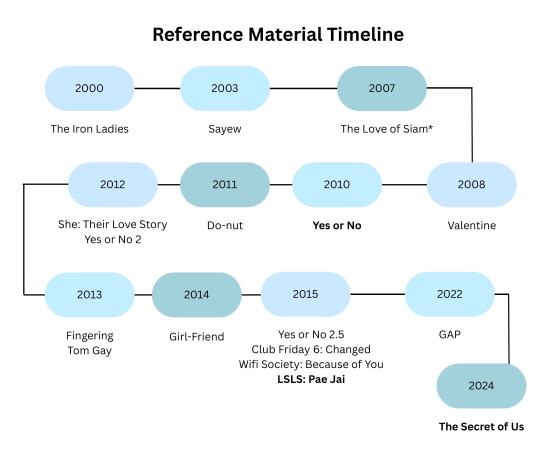
(This timeline is in terms of the films/series referenced in this post- not the full one in terms of showcasing the entire history of Thai sapphic representation)
Yes or No was the first film that P'Nay directed. Besides her, the idea was born out of the collaboration between three different people: a producer and owner of a publishing house, a script writer named Jeab Wattana Weerayawattana (The Fallen Leaf, No Romeo), and another producer named Aod Bhandit Thongdee (After Sundown, Even Sun).
Originally, P'Aod was slated to direct the film, but he eventually decided to work behind-the-scenes because he wasn't sure if he was the right fit.
P'Nay happily accepted instead, and shared that she had wanted to work on a similar project for a long period of time.
It took the team around 2 years of pre-production and over 20 drafts before the script was finalized, which means that work on Yes or No started the same year Valentine was released, and only one year after The Love of Siam. However, they shot the film quicker than usual: in only around 2 months.
In interviews, P'Nay and P'Aod have talked about their intentions for the project, which was that they wanted to create a romantic, easy-to-watch movie that would tell the story of true love.
Both of them wanted Thai people to watch it "with an open mind...[so] that they will understand more about lesbians" [2].

Yes or No follows the story of Pie (played by Aom Sushar Manaying), a college student who is assigned a new roommate, Kim (Tina Suppanad Jittaleela). Because Kim looks/dresses like a tomboy (or a tom), Pie initially harbors negative feelings towards her (mostly due to her mother's overarching influence, but possibly even due to a sense of internalized homophobia, as well). Eventually, though, they begin to warm up to each other, and they gradually fall in love.

To give a brief overview of the term "tom" (sometimes also spelled thom), the best way to explain it is that it's more of a culturally specific Thai word. It's short for the English word tomboy, and typically refers to a sapphic woman who dresses, speaks, or acts in a more masculine way (the closest equivalent in the English LQBTQ community is maybe the terms "butch" or "masc"- but those don't exactly/fully map onto the word tom).
In a podcast episode with PHD student Emi Donald (special thanks to absolutebl for sharing this resource; super happy that it came up at a time where I was working on this project!), they provide an alternative definition of the term tom (i.e. someone assigned female at birth who expresses themselves through masculinity). They also bring up the fact that this is a category that has been around since the 1950s (so it is by no means new).
Two of P'Nay's works contain main characters who are toms (Yes or No and Love Songs Love Stories: Pae Jai), and, in both, aspects of identity also play a big role [3].
Although Yes or No is really notable for being one of the first Thai films to really explore (in-depth) notions of sapphic romance, it's also significant for the way that it grapples with issues related to labels and identity- which is something that I wanted to highlight in this post (especially since it's an area that I feel is very under discussed).


Early on in the film, one of our main characters, Pie, initially tries to change dorm room assignments because of Kim's more masculine-looking appearance (which she reads as evidence of her presumed identity as a tom) [4].
When Kim protests that she's not, and that she doesn't use that particular term, Pie says:
P: You're not a tom even though you look like this? K: I'm really not a tom, I'm a girl. P: (sarcastically) Umm, a girl? A girl like this? Look at your face, hair, style, personality, and body...
Citing the fact that "it's as if I lived with a man. I'm not comfortable living with a tom," Pie's request for a room change is eventually denied by the university staff as they force her to confront her prejudices ("How uncomfortable?").
While Pie gradually changes her point of view, Kim still faces hostility from other people around her. Some of the boys at their university harass her, asking:
- Oh, my head hurts. - Why? - I met a girl who's more handsome than me....Do you use Mr. or Miss?
This harassment continues up into the middle of the film, where both Pie and Kim (now freshly together) are confronted by them again:
- But my eyes are irritated. - Why? - It's like a tom took over our colony. - We'll sing this song for them (*sings rude song used to tease female lovers*)

These experiences, along with Pie's previous questioning of her sense of identity, leave Kim feeling lost.
This becomes clear especially during an earlier, more pivotal moment that occurs before the start of their relationship, when Pie asks:
P: May I ask you something? Is In (another character) a tom? Come on, tell me. I want to know. K: I don't know and [don't] care about these things because I'm not [a tom]. P: Hey, Kim... I'd like to speak frankly. Nobody thinks you're not a tom. I'm serious. The more you refuse, the more you are. K: Ok, so please tell me...exactly what is a tom? P: They're like you. They act like you. They aren't feminine at all and typically have girlfriends. Some of them like to act overly manly... K: So, I don't look like a girl, and I don't like girls...and I'm not overly manly. What am I, then?


Later on, once Kim sits down to have a conversation with Auntie In (sort of a mentor figure to her), she's able to work through some of these complicated feelings more in-depth.
AI: Let me ask you frankly...This expression of yours, how are your inner feelings? K: Inside? You mean me being tom? AI: There are people who look like it, but they're not. And there are others not like this, but they are. Actually, things like this come from the inside, not from one's appearance. Don't let appearance make the decision for you. You should be what you are inside....I see you two always giggling with each other. In what way do you like Pie? K: Friend, just a friend. AI: Are you sure?
This conversation leads Kim towards an understanding of both her feelings towards Pie (especially since previously she protested that she didn't like girls), as well as more of a sense of acceptance/willingness to use the label tom.
Also embedded within Auntie In's words is the idea that labels shouldn't depend on one's own physical appearance (especially in terms of the stereotyping that happens in terms of the interaction with the boys earlier).
Put together, this is an incredibly nuanced understanding of queerness that is multi-directional, and factors in multiple difference issues and points of view (i.e. the frustration with having a label assigned to yourself, the understanding that queerness and sapphic identity cannot be predicated on appearance alone, the ability to return back to an earlier label and either be okay [or neutral about] others using it to refer to yourself).
(s/n: this is my personal interpretation of this section of the film, but, since I recognize that this topic is so complicated and that there's a lot going on, I know that people may read it in different ways, too).

This conversation that she has with Auntie In continues to linger with Kim for a long period of time.
Again, although Kim later becomes much more confident about her identity, she still has doubts/fears from time-to-time: in a moment of vulnerability, she asks Pie during an argument in Yes or No 2 if she's afraid of dating a tomboy.
I'm really grateful that these discussions ended up in both films: although, in some sense, it might be easier for some of the first breakthrough Thai sapphic pieces of media to focus solely on romance, they're trying to do much more than that, and to think through questions of labels and identity in much more interesting ways.

Though I've primarily talked about Kim so far, in some ways Pie is her foil. It might be simple (especially coming from a position in 2025) to hate Pie as a person: to strongly dislike her treatment of Kim at the beginning of the film, and thus not find her redeemable.
But, in some ways, they're both working towards each other in opposite directions: Pie is suffering from growing up in a family with a homophobic mother that leads her to fear coming out, as well as to project an external sense of homophobia onto others. Kim is struggling with confronting queerness in a different way- through questions of labels and identity.
Especially if you've watched the sequel, it's clear that (while not defending all of their actions), both characters aren't perfect- they're moving through life together in messy and sometimes complicated ways.
youtube
The reaction was Yes or No was pretty amazing, especially for being such an early piece of sapphic media. In a 2011 interview, P'Nay shared early on that the response was "very good, [much] better than expect[ed]" (they had initially expected the movie to be condemned) [5].
The film was successful enough to receive an offer to be shown at an international film festival in Japan, as well as to allow Aom (and especially Tina) to build large foreign fanbases in China and Taiwan [6].
In fact, Yes or No might be one of the earliest examples of the power of the Thai wave: Aom mentioned that Chinese fans ordered books in Thai even though they couldn't read the language (so they tried to start learning). To capitalize off this popularity, the company released photo books, as well as a ton of merch.
In Thailand, the film also received support: initially, mostly younger girls came to see it, but gradually people of all ages and genders came. Looking back at posts from 2010 on Pantip (a Thai forum), many people shared how much they loved it, or talked about their experiences crying in the theater.
According to P'Nay, when the movie was screened to target audiences and testing groups, they did not initially receive any negative feedback. She mentioned that it resonated a lot with the lives of the general public, except for the ending (which was more specific/relatable to queer people).
Tina was not out at the time of the film's release, although she eventually did become so later in life [7].
She and a few other friends currently run the channel TomDunDee, where they often share their own experiences with queerness and interview different groups of guests.
Here they are with Noey Natnicha, an actor that also plays a tom character (Tee) in GAP:
youtube
After Yes or No', a wave of similarly inspired films came out: two spinoffs/sequels in 2012 and 2015, and a variety of new content (many of which also featured tom characters): Do-nut (2011), She: Their Love Story (2012), Fingering (2013), and Tom Gay (2013).
This brings us all the way up to 2015, during which P'Nay and P'Jeab reunited to work on another project: one of the first official GL series, LSLS.
Love Songs Love Stories: Pae Jai

Love Songs Love Stories: Pae Jai is a two-episode mini-series that is part of a larger collection with an overarching theme. The stories in the collection are separate from each other, but they're all built around/inspired by different love songs that have previously been released.
The song in question that inspired LSLS is the 1998 work "Pae Jai" by Mai Charoenpura (I've seen the title translated both as "defeated heart" or "heart surrender").
At the time, Mai Charoenpura had some kind of connection to GMM Grammy (one of the parent companies under which GMMTV is associated with).
In 2014, she released an official MV with them, which includes shots of various different friend groups or couples having their photos taken.

While most of the people shown in the MV for the song are het couples, there is a brief moment where a (potential) sapphic couple is shown on screen holding a baby (although I say potential because there aren't any explicit confirmations about the nature of their relationship, and they might have been intended to be friends or relatives).
When I saw this moment in the video, I was immediately curious about if it was something that might have sparked P'Nay and P'Jeab's interest in making another queer production.
It's very tough to find interviews with P'Nay about this series, so I'm unsure if she was approached and asked to make a work with sapphic content- or if she had more free reign and decided to do it on her own. Regardless, LSLS: PJ premiered on GMM 25 as the third installment in the collection on December 3.

Jeab and Kao together with director P'Nay and scriptwriter Jeab Wattana
LSLS is focused around Fay, a tom played by Jeab Lalana Kongtoranin (an actor and doctor who was crowned Miss Thailand in 2006, and who also played a sapphic character in Vice Versa). Fay is recovering from a tough breakup with her ex-girlfriend Mon, and feels deeply hurt and alone. Gradually, though, she begins to open up her heart to a new person, Mameaw (played by Kao Supassara Thanachart; recognizable from her role in Hormones), and they eventually fall in love.
The events of the story map both literally (the line "kept my heart in a drawer") and figuratively onto the lyrics of the song, which are also about recovering from heartbreak and finding true love again ("Sick and tired of change/I don't care and I'm not hopeful/And then you walked into my life").
Combined with a bunch of other production-related choices, this is a fascinating series as a whole- at times it feels both familiar, while also very unique to a lot of other early queer productions.


For instance, especially because they were made by the same director and same screenwriter, there are some similarities between Yes or No and LSLS: both works focus on tom/dee relationships [3], feature very casual displays of affection (i.e. scenes cuddling in bed), and have large, openly queer friend groups.
While not listed on MDL, LGBTQ actor James Rusameekae also appears as part of the friend group- alongside popular TV personality and host Nui Thanawat.


LSLS is interesting because although the two main characters never actually kiss on the lips (they only kiss on the cheek), the show still manages to feel very queer and informed by aspects of the LGBTQ experience.
As part of the series, we also get some additional conversations surrounding labels and identity. Fay is a photographer who often does a lot of photoshoots, and one of her friends, Joyce (who is also a tom), is a model.
When questioned about why she's okay with dressing in more "feminine" clothes when she typically has a more "masculine" appearance, Joyce responds that she's happy to wear whatever she wants during photoshoots because her clothing/styling doesn't define her. While this message is delivered in a slightly clumsy way, it's still an attempt at presenting a more nuanced understanding of queerness to a more mainstream audience.

Images from Club Friday Season 6: Changed
To build off this point a little bit more, for a second I want to go back and discuss an important production that aired only a few months earlier on the same channel: Club Friday Season 6: Changed (I have a separate post covering this very complicated show, which you can read here).
Like LSLS, CF: Changed features a tom main character (Meen) also played by Jeab Lalana (she was cast as two different queer characters within the span of a few months).
In LSLS, Fay is portrayed as more confident and uncaring about her queer identity, while in CF, Meen agonizes over it- originally identifying as a tom only to fall in love with a man, which puts her understanding of her sense of self, as well as the way she fits into the broader queer community into question.
I mention this point out a variety of circulating discourses about queerness and labels that were present during this period of time.
Five years later after Yes or No's premiere, questions related to identity were still trying to be worked out in the mainstream conscious, with different approaches, different levels of sensitivity, and different levels of success and failure (CF: Changed is successful in some ways, while difficult to sit through in others) [8].
This time period in the early-to-mid 2010s is also important, because, especially as we move into the years of 2016 and 2017, less and less toms appear as main characters (when they are present in shows, they're usually relegated to side characters, such as Noey's character Tee in GAP).
I'm not exactly sure why this is the case (most likely there's a variety of reasons), but there is a somewhat longer history of butch and femme women receiving a different amount of visibility in older queer media (as well as the broader media landscape). (Although discussing a different time period/culture, it might be helpful to see Ann Ciasullo's paper, "Making Her (In)Visible: Cultural Representations of Lesbianism and the Lesbian Body in the 1990s")


Returning back to LSLS, one thing that slightly disappointed me about it was a prolonged focus on drama/the breakup: in some ways, Mameaw and Fay's ending get-together feels a little rushed.
But there's still some fun little tropes that appear as well: Fay stands outside of Mameaw's house with a sign in order to ask for forgiveness in a very classic rom-com-esque moment.
In addition, there's also a shampoo product placement scene towards the end of episode 1, where Mameaw washes Fay's hair. I love this moment so much- it's very reminiscent of a lot of early, in-universe sponsored BL content, and I wouldn't be surprised if this was the first of its kind to appear in a GL series/sapphic work.
Although the GL industry didn't fully pick up until 2022, it's clear that there was still commercialization happening within the span of 2011-2015 (possibly even earlier), which is really fun to think about.

To go back to our timeline, LSLS was happening at a time where there was not a lot of sapphic content on TV: the first independently produced GL series, Girl-Friend (2014), which aired on Youtube, had only been released the year before, and although there were some sapphic characters in some mainstream works (such as Songkram Nang Ngarm, I believe), there was still not a lot of series explicitly focused on/centered around romance.
The release of the one-episode special Wifi Society: Because of You earlier in 2015, alongside CF: Changed and LSLS had begun to shift things, but it wasn't really until the late 2010s and early 2020s that a larger number of sapphic characters began to appear prominently on TV (though still not a lot).
After LSLS, P'Nay took a break from GL-related content for a while, and mostly worked on directing het dramas/lakorns for Channel 3 [9].
In 2024, though, she would return with a new team of screenwriters to produce the popular GL series The Secret of Us.
The Secret of Us

The Secret of Us was Channel 3's attempt to produce an original series that would capitalize on the growth of the GL industry (especially after GAP's premiere on the same channel in 2022).
Following the story of Earn, who attempts to reunite with her ex-girlfriend Dr. Fahlada, TSOU feels much more like a lakorn compared to P'Nay's earlier works: introducing more dramatic elements in order to appeal to mainstream audiences.
Although slightly different in tone, P'Nay returns back to similar elements/themes: another openly queer friend group (this time with a BL side couple), a relationship that features casual displays of affection, discussions about and instances of homophobia (although largely absent from LSLS, like Yes or No, Fahlada's mother in TSOU is intensely homophobic, and attempts to tear about their relationship).


But as time has passed, P'Nay also continues to push further: we're treated to a wedding in the final episode, and there are also several moments where it's possible to read conversations happening about queerness.
In particular, I really like a scene that happens near the beginning of episode 8, where Earn feels guilty about the reason why Fahlada's mother has ended up in the hospital. Suzie, Earn's manager, reassures her, saying:
S: Why? You didn't do anything to her mom. E: But if I hadn't come out and stayed hidden, none of this would have happened. We're in this situation because I came out. S: No, don't overthink it...You can't stop someone from getting sick. Right now, Dr. Fahlada needs all the support she can get, and you have to be strong for her.
Perhaps this moment is dependent on the translation, but I like the double meaning of this conversation: although Suzie is referring to how Fahlada's mother received the announcement of their relationship, it's also hinting at the process of coming out in the first place.
In addition, since it's delivered by Eclair Chatsak (an openly LGBTQ actor who plays Suzie), I feel like this conversation has the potential to feel subtle yet highly personal at the same time.

Like most of P'Nay's sapphic works so far, the series concludes with a happy ending (but not before a lead-up with a little bit of angst).
After its premiere, TSOU did amazing- with the advantage of being placed in a slightly earlier time slot, it garnered a 0.67 average rating (higher than CF: Love Bully or GAP), and, up until Petrichor's release, was the most-watched GL series on TV. Today, it still holds the record for having the highest ep. 1 premiere (0.92) out of all the other GLs, and currently ranks #7 in terms of QL TV viewership.
In 2024, Lingling and Orm were the QL pair with the most amount of engagement on Thai Twitter with over 130 million tweets, and came fourth in terms of popularity in China.
P'Nay's next project is also with them, as she directs another GL series for Channel 3 (called Only You) set to come in 2025.
Alongside that, Lingling and Orm are also rumored to be working on another work (a movie) this year.
Conclusion

P'Nay and Tina being interviewed around the time that Yes or No first came out
Going into this write-up, especially as we head into Only You (and as adaption rights for a remake of Yes or No have recently been acquired!) I feel like a retrospective of P'Nay's work has long been overdue.
While working on this project, it really impressed on me the amount of growth that has happened over the space of 25 years: we went from a small amount of representation to almost an explosion of it (over the last couple months, I feel like it's almost been an arms race as companies rush to acquire the rights to different GL novels/enter the scene), and as much as aspects of P'Nay's work have changed, other parts remain the same.
I'm grateful for P'Nay for continuing to work in the GL industry, and to continue to make really smart, inclusive, and interesting choices with her content: to invite in queer actors, to display sapphic affection and intimacy, to try and hold conversations about identity and labels on a broader, more mainstream scale.
None of her stuff is totally/completely perfect: like most things, there's some criticism that you could make (and also so many other things you could write about- I had to cut so much stuff out to have this post even be a somewhat "reasonable" length), but I'm thankful nonetheless.
youtube

Before we end, let's close out this post with a few more connections between new and old projects: Faye & Yoko singing along/performing a version of Pae Jai, and, my favorite, one final cameo that P'Nay snuck into her most recent work: Tina and Aom appearing as restaurant patrons in ep. 1 of TSOU.
----
When I say this post took a long time, I mean it: it's one of the first parts of a larger project I started back in Nov/Dec that explores a wide variety of early Thai sapphic representation- so I'm so happy that I'm finally able to release it into the wild.
Super grateful for JeablalanaFc and Jeab Paule on Dailymotion for subbing LSLS: PJ and CF Season 6: Changed: without them, both shows would be much less accessible, and for suteera on Youtube for subbing so many early interviews with the cast of Yes or No. I'm also grateful for @waitmyturtles for acting as a sounding board in the early days of working on the project- I appreciate you so much!
In a follow-up post, when I have some more time, I'll write a little bit more about GAP, as well as two other shows (Love of Secret and The Root) that were airing on same channel (Channel 3) at the same time, in order to understand different concurrent expressions of queerness and sapphic identity.
(And maybe a little bit more about early 2010s GL fan culture? Who knows, haha)
----
Footnotes:
[1]: Like Claire, P'Nay is also openly queer, which means that some of the earliest directors in the GL space were sapphic women. I ended up leaving this more as end note because I'm still looking for an official source in Thai where she shares this information (I want to be clear that, especially as a queer person myself, my intention is not to doubt her, but more so to try and to be careful since the current source I have is so secondhand).
[2]: In other to support this goal, P'Nay supposedly gave free copies of Yes or No to Thai schools "so that young people could see a positive story about a same-sex relationship" (however, this anecdote also comes from a secondhand source).
[3]: Another identity category alongside the word tom is "dee:" this refers to a "homosexual (or bisexual) female who follows outward Thai gender norms. A dee will look, act, and speak in a manner congruent with Thai female gender norms." Many early Thai GLs/pieces of sapphic media feature tom/dee relationships.
[4]: Appearance also played an important role in the casting process, as well: P'Nay was purposefully looking for an actor who could play Kim that had "an ambiguous look...[a] mix of a tomboy and [a] girl because Kim is not too sure about her sexuality."
[5]: In terms of why P'Nay expected the film to be "condemned," this is most likely related to the audience's reaction to Love of Siam, which aired only three years before. Ma-Deaw Chookiat, LOS's director, observed that in theaters the film hadmore of a mixed/controversial response.
[6]: In regards to international recognition, both Tina and Aom have held fan meetings in China, and Tina has appeared on at least one variety show there.
[7]: Like many other early QL actors, Tina fielded a lot of questions about her sexuality- some of the questions/comments were so invasive that it makes it really tough to watch a lot of early interviews.
[8]: For more information about the show/this time period, see Shi-Yan Chao's paper "The Signifying Tomboy and the Thai TV Series Club Friday To Be Continued: She Changed" (excerpts here).
[9]: During this intervening period, P'Nay directed a variety of shows, including but not limited to: Rang Tawan (2016), Tra Barb See Chompoo (2018), Secret Garden (2019), You Are My Heartbeat (2022), Love Destiny Season 2 (2023), and My Love in the Countryside (2024).
As always, feel free to let me know if anyone notices any mistakes or issues. Thank you so much for reading!
#yes or no#thai gl#yes or no 2010#love songs love stories pae jai#the secret of us#the secret of us the series#gl series#thai ql#gl drama#ql#lingorm#lingling sirilak#orm kornnaphat#tina suppanad#aom sushar
46 notes
·
View notes
Text
Ladaaaa!!😂😂😂 You wanted to show Earn, eh!! 🤣





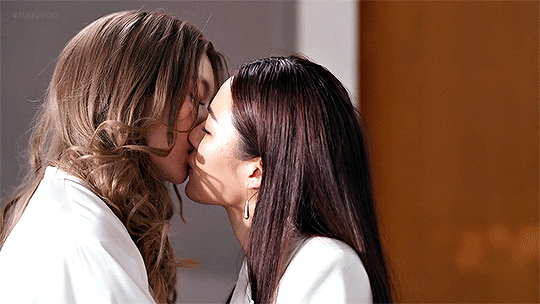


oh they want each other so bad, it's even embarrassing they're still playing cat and mouse.
LINGLING SIRILAK as FAHLADA THANANUSAK and ORM KORNNAPHAT as EARN SANITHADA episode 4 of THE SECRET OF US
#the secret of us#the secret of us the series#the secret of us series#th: the secret of us#lingorm#tsou#lingling sirilak#orm kornnaphat#gl drama#thai gl#wlw#orm's lips were so red and bruised i have no idea how many times they filmed this kissing scenes but thank you for your hard work
3K notes
·
View notes
Text
🧩 How to Outline Without Feeling Like You’re Dying
(a non-suffering writer’s guide to structure, sanity, and staying mildly hydrated)
Hey besties. Let’s talk outlines. Specifically: how to do them without crawling into the floorboards and screaming like a Victorian ghost.
If just hearing the word “outline” sends your brain into chaos-mode, welcome. You’re not broken, you’re just a writer whose process has been hijacked by Very Serious Advice™ that doesn’t fit you. You don’t need to build a military-grade beat sheet. You don’t need a sixteen-tab spreadsheet. You don’t need to suffer to be legitimate. You just need a structure that feels like it’s helping you, not haunting you.
So. Here’s how to outline your book without losing your soul (or all your serotonin).
—
🍓 1. Stop thinking of it as “outlining.” That word is cursed. Try “story sketch.” “Narrative roadmap.” “Planning soup.” Whatever gets your brain to chill out. The goal here is to understand your story, not architect it to death.
Outlining isn’t predicting everything. It’s just building a scaffold so your plot doesn't fall over mid-draft.
—
🧠 2. Find your plot skeleton. There are lots of plot structures floating around: 3-Act. Save the Cat. Hero’s Journey. Take what helps, ignore the rest.
If all else fails, try this dirt-simple one I use when my brain is mush:
Act I: What’s the problem?
Act II: Why can’t we fix it?
Act III: What finally makes us change?
Ending: What does that change cost?
You don’t need to fill in every detail. You just need to know what’s driving your character, what’s blocking them, and what choices will change them.
—
🛒 3. Make a “scene bucket list.” Before you start plotting in order, write down a list of scenes you know you want: key vibes, emotional beats, dramatic reveals, whatever.
These are your anchors. Even if you don’t know where they go yet, they’re proof your story already exists, it just needs connecting tissue.
Bonus: when you inevitably get stuck later, one of these might be the scene that pulls you back in.
—
🧩 4. Start with 5 key scenes. That’s it. Here’s a minimalist approach that won’t kill your momentum:
Opening (what sucks about their world?)
Catalyst (what throws them off course?)
Midpoint (what makes them confront themselves?)
Climax (what breaks or remakes them?)
Ending (what’s changed?)
Plot the spaces between those after you’ve nailed these. Think of it like nailing down corners of a poster before smoothing the rest.
You’re not “doing it wrong” if you start messy. A messy start is a start.
—
🔧 5. Use the outline to ask questions, not just answer them. Every section of your outline should provoke a question that the scene must answer.
Instead of: — “Chapter 5: Sarah finds a journal.”
Try: — “Chapter 5: What truth does Sarah find that complicates her next move?”
This makes your story active, not just a list of stuff that happens. Outlines aren’t just there to record, they’re tools for curiosity.
—
🪤 6. Beware of the Perfectionist Trap™. You will not get the entire plot perfect before you write. Don’t stall your momentum waiting for a divine lightning bolt of Clarity. You get clarity by writing.
Think of your outline as a map drawn in pencil, not ink. It’s allowed to evolve. It should evolve.
You’re not building a museum exhibit. You’re making a prototype.
—
🧼 7. Clean up after you start drafting. Here’s the secret: the first draft will teach you what the story’s actually about. You can go back and revise the outline to fit that. It’s not wasted work, it’s evolving scaffolding.
You don’t have to build the house before you live in it. You can live in the mess while you figure out where the kitchen goes.
—
🛟 8. If you’re a discovery writer, hybrid it. A lot of “pantsers” aren’t anti-outline, they’re just anti-stiff-outline. That’s fair.
Try using “signposts,” not full scenes:
Here’s a secret someone’s hiding.
Here’s the emotional breakdown scene.
Here’s a betrayal. Maybe not sure by who yet.
Let the plot breathe. Let the characters argue with your outline. That tension is where the fun happens.
—
🪴 TL;DR but emotionally: You don’t need a flawless outline to write a good book. You just need a loose net of ideas, a couple of emotional anchors, and the willingness to pivot when your story teaches you something new.
Outlines should support you, not suffocate you.
Let yourself try. Let it be imperfect. That’s where the good stuff lives.
Go forth and outline like a gently chaotic legend 🧃
— written with snacks in hand by Rin T. @ thewriteadviceforwriters 🍓🧠✍️
Sometimes the problem isn’t your plot. It’s your first 5 pages. Fix it here → 🖤 Free eBook: 5 Opening Pages Mistakes to Stop Making:
2K notes
·
View notes
Photo
I don't get the hate this drama gets from people! 😂😂😂I love it! So realistic!!









“Only like me. Okay?” “Then stop making me get my hopes up…”
1K notes
·
View notes
Text
A Guide To Current GL Pairings
AppleMim
- Apple Lapisara & Mim Panthita
IG: applelapisara & mimu.p
Projects: 4 Elements
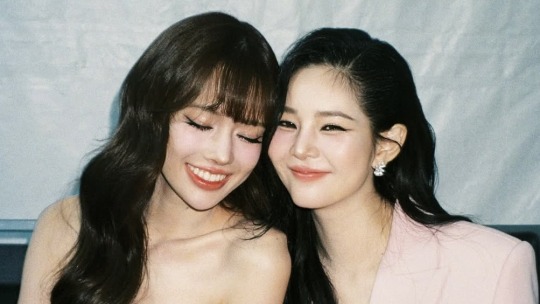
ArPam
- Arhoung Nattawadee & Pam Tarradee
IG: arhoungg & ppammelar
Projects: Queendom
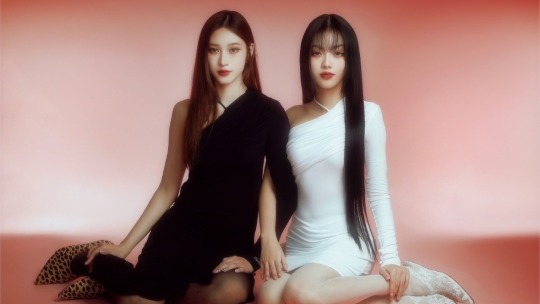
BleJie
- Mable Siriwalee & Pangjie Paphavarin
IG: mable_siriwalee & pangjiewr
Projects: Clairebell
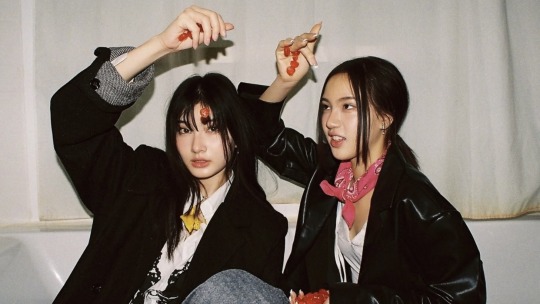
EarnFairy
- Earnearn Fatima & Fairy Kirana
IG: earn.muien & kiranaa.q
Projects: Flat Girls, No Romeo
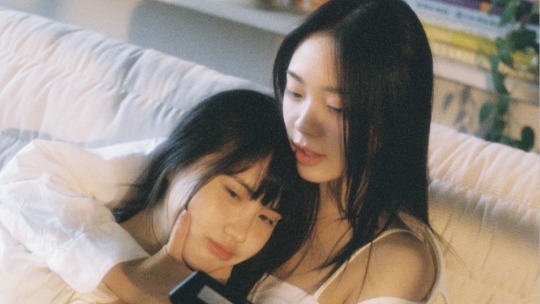
EmiBonnie
- Emi Thasorn & Bonnie Pattraphus
IG: emiamily & beonnnie
Projects: Us

EngLot
- Engfa Waraha & Charlotte Austin
IG: fa_engfa8 & itscharlotty
Projects: Show Me Love, Love Bully, Petrichor, 4 Elements, Unlimited Love
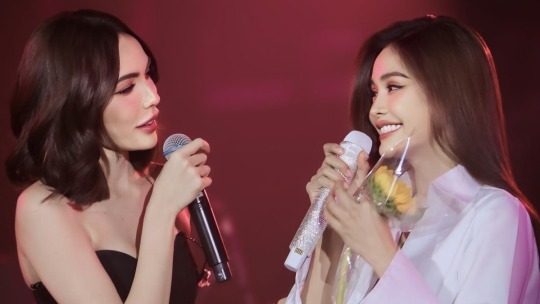
FayMay
- Fay Kanyaphat & May Yada
IG: fay_riezz & maywyda
Projects: My Marvellous Dream Is You, Somewhere Somehow
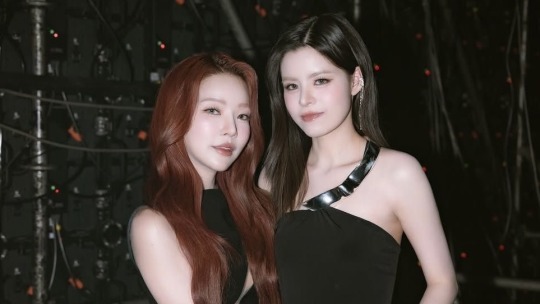
FreenBecky
- Freen Sarocha & Becky Armstrong
IG: srchafreen & beccca
Projects: Secret Crush On You, GAP, The Loyal Pin, Uranus2324, Cranium, 4 Elements
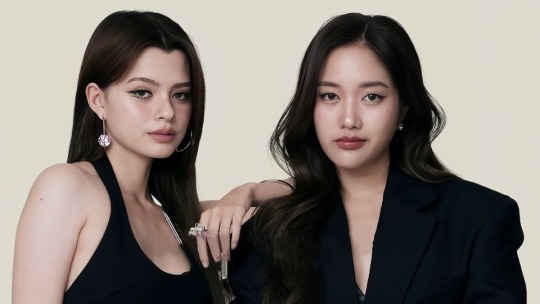
GraceNingning
- Grace Harper & Ningning Marika
IG: thegraceharperr & ningningmari
Projects: Player
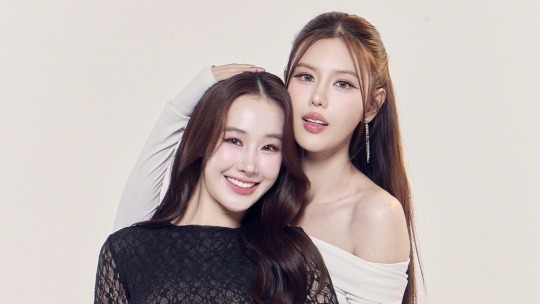
GraceOaey
- Grace Budsarin & Oaey Ponchanok
IG: gracebudsarin & oaey.ponchanok
Projects: Mate
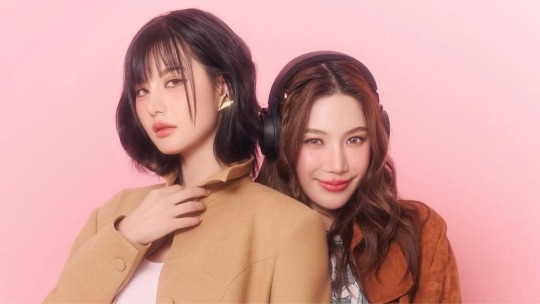
IceMemi
- Ice Amena & Memi Muanfun
IG: ice_amena & memibae
Projects: Player
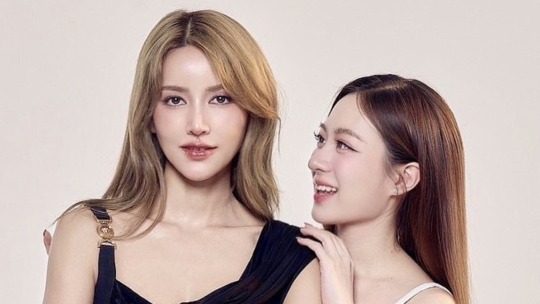
JuneMewnich
- June Wanwimol & Mewnich Nannaphas
IG: junewanwimol19 & mewnich.nannaphas
Projects: Whale Store XOXO

KaoJane
- Kao Supassara & Jane Methika
IG: supassra_sp & janeeyeh
Projects: Love Design
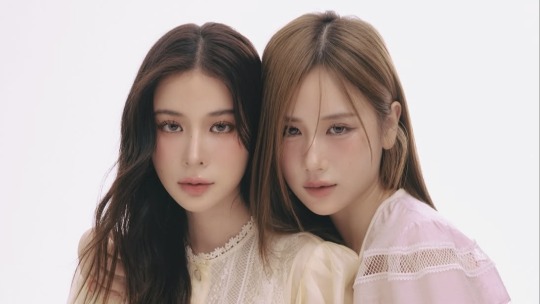
LenaMiu
- Lena Lalina & Miu Natsha
IG: lalinalena & mmiunatshaa
Projects: My Safe Zone
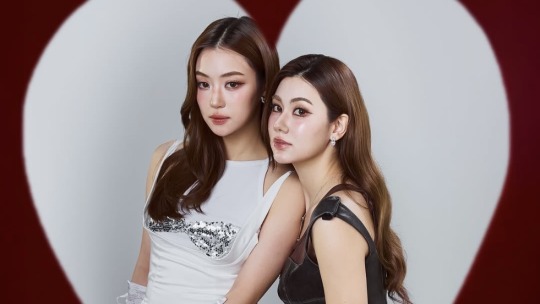
LingOrm
- Lingling Kwong & Orm Kornnaphat
IG: linglingkwong & orm.kornnaphat
Projects: The Secret Of Us, Only You

LMSY
- Lookmhee Punyapat & Sonya Saranphat
IG: lmlookmhee & sonyasarann
Projects: Affair, Harmony Secret
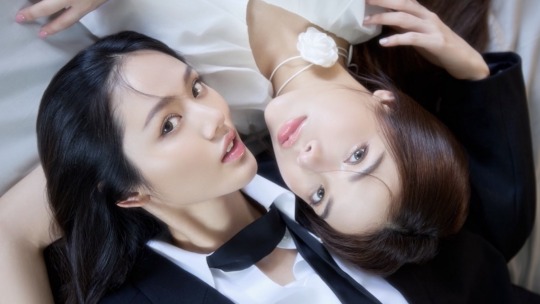
MilkLove
- Milk Pansa & Love Pattranite
IG: panly.v & loverrukk
Projects: Bad Buddy, Vice Versa, Magic Of Zero: Zero Photography, 23.5, Whale Store XOXO, Girl Rules

NamtanFilm
- Namtan Tipnaree & Film Rachanun
IG: namtan.tipnaree & fr.racha
Projects: Last Twilight, Ploy’s Yearbook, Pluto, Girl Rules
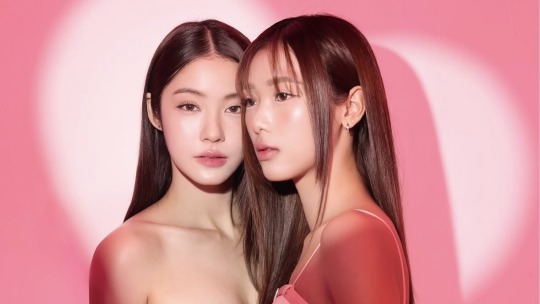
NattPitcha
- Natt Kwon & Pitcha Pitchatorn
IG: nkwww & pitchaaaa_s
Projects: Reverse With Me, Natt & Pitcha House
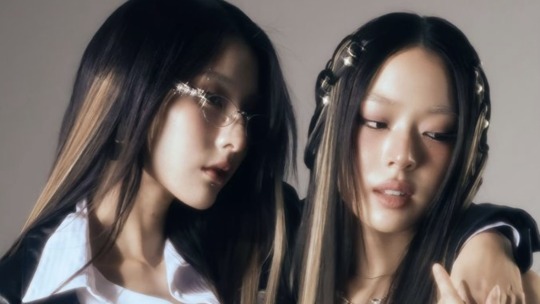
OrmFolk
- Ormsin Supitcha & Folk Sutima
IG: omeormorm & ffolky
Projects: Apple My Love, Your Apple
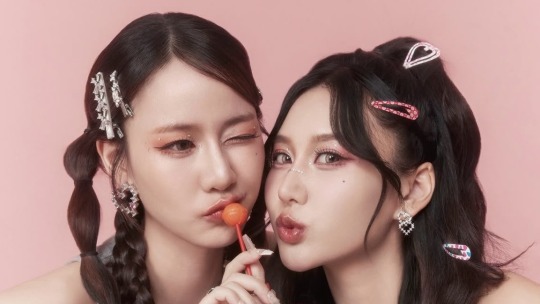
ViewMim
- View Benyapa & Mim Rattanawadee
IG: view.benyapa & mim.rattanawadee
Projects: Us, Sweet Tooth Good Dentist, Girl Rules
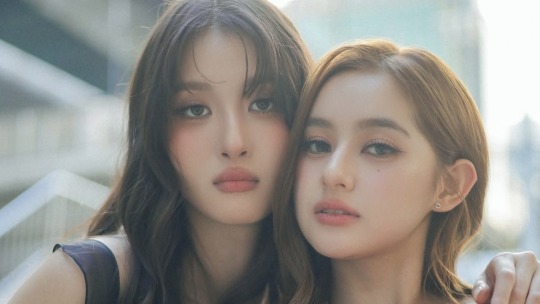
404 notes
·
View notes
Text






Orm Kornnaphat and Lingling Kwong as Earn Sanitada and Fahlada Thananusak Ep 6 of The Secret of Us
331 notes
·
View notes
Text
finally watching the secret of us ep 1 and like,,, the fact that they got tina & aom from THE og thai gl movies yes or no to do a cameo in 2024???? BEYOND ICONIC!!! my jaw dropped I did NOT see that coming, slay 😭🫶
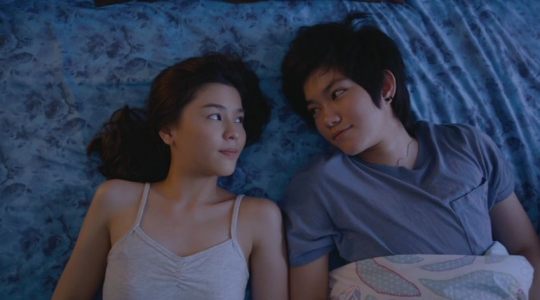
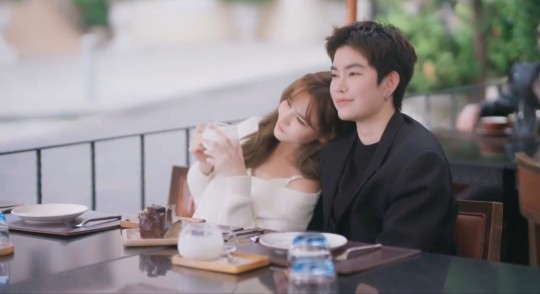
158 notes
·
View notes
Note
hello! hope youre having a great day! ive been following you since clexa days and i wanted to start watching gl tdramas because of the gifsets youve been making/reblogging recently but i have NO idea where to start, do you have any recs on what to start with? Thank you!
hiiiiii nonny! thank you, today's truly been a lovely day, can't complain. hope yours is going well too! and oh gosh, clexa days, that's so long ago 🥰
soooo i would definitely recommend starting with something that's finished so you're not going through the same torment the rest of us are, which is waiting a week between each episode 😂
However, if that doesn't bother you then my number 1 recommendation is to start with Us, which has become my favorite and most beloved Thai GL series.

Not gonna wax poetically about it (again) 'cause I actually did that in a different ask just yesterday (even though I totally could 😅), but in short - it's gorgeous, it's so well written, it has beautiful and complex characters, the love story is as intimate, domestic and wonderful as you can possibly imagine, the main pairing have the most amazing chemistry and I wholeheartedly recommend it.
It's currently airing and new episodes come out on saturdays, and you can find it on Youtube (and kisskh), and here's the trailer for it.
My highest recommendations for Thai GLs that are finished would probably be Pluto and The Secret of Us, and I suggest starting with either of the two.
Pluto is truly a drama in the full sense, with all the twists and turns and everything that comes with a drama series, the main pairing are played by Namtan Tipnaree and Film Rachanun, who have amazing chemistry and played their parts wonderfully.

The rest of the cast really works great alongside them and the story is about Ai-oon, the "disappointing" twin sister of Ob-oo, who ends up taking her sister's place (and her gf😅). Don't wanna spoil too much so i'm being really vague here, but expect to laugh, and possibly cry, a lot.
You can find Pluto 100% free here on youtube as well as here on kisskh.
The Secret of Us is a gorgeous drama that follows the love story of Dr. Fahlada and the ex that broke her heart, Earn. We see them reconnect and reignite an old flame that never really went out and the drama is full of silly, loveable, funny, sometimes heavy moments that are beautifully portrayed, and played by one of the industry's most popular and most successful gl pairing, Ling Ling Kwong and Orm Kornnaphat (they're also known as lingorm).

The first 3 episodes are on youtube, however you can find the complete series up on kisskh (free).
There's (can't believe I'm about to say this, what a glorious time to be alive) a bunch more finished Thai GL series that you can jump right into as well, here's a lil list for you (trailers and links included) mostly off the top of my head:
GAP trailer - office romance between the CEO and an employee (youtube ep1 'cause they have playlists for each ep 😩, kisskh) - the first gl i ever watched, the queen GL 😅- currently the most viewed gl series on youtube
Affair trailer - the title kinda says it 😂 but it's actually childhood friends to lovers with a lot of bumps along the way (youtube, kisskh)
Blank trailer - the love story of two women who have a sixteen year age gap between them that i actually really love a whole bunch (kisskh; not sharing the youtube link 'cause we're boycotting 9star studio)
Petrichor trailer - mystery/thriller/romance drama following the love story of office Tul and forensic doctor Cherran and it's awesome (kisskh)
Reverse 4 You - time manipulation powers meet lesbians! (it's awesome, i LOVE it) (youtube, kisskh) - trailer - there's also a currently airing GL that's set in the same universe, also with time manipulation powers, called Reverse With Me - trailer (kisskh)
23.5 trailer - highschool romance/secret admirer (youtube, kisskh)
The Loyal Pin trailer - a period drama following the love story of princess Anilaphat and Lady Pin (youtube, kisskh)
Apple my Love trailer - office romance/secret admirer (youtube, kisskh)
Mate trailer - childhood friends reunited and turned lovers (youtube, kisskh)
Love Senior trailer - college love story (with a lot of ups and downs) (youtube, kisskh)
Not a Thai drama but definitely a must-mention is a Taiwanese drama, Fragrance of the First Flower, which I've been going absolutely crazy over and highly recommend it as well! It's gorgeous, it's complex and nuanced, and currently has an amazing 2nd season airing. Trailer for S1 is here, S2 here, and you can watch it here.
Another must-mention is Friendly Rivalry, a korean GL drama (if i see another person say it's queer baiting i will go on a lil' murder spree 🔪) which I totally went insane over and will be a little feral about, for another couple of months at least. Trailer's here, and you can watch it here.
I'm missing a couple GLs here, I'd have to check my list of favorites, but I also suggest checking @girlsloveupdates pinned post for an extensive and great list of GL Series and all relevant updates.
This got extra long and I'm a little sorry about that (but not terribly so), hope it'll be helpful c: if you wanna come ask about anything or just shout your thoughts/impressions at me, I'd love that! Thank you for your ask and hope you have a wonderful time watching!
me, gently cradling every new gl series enjoyer:
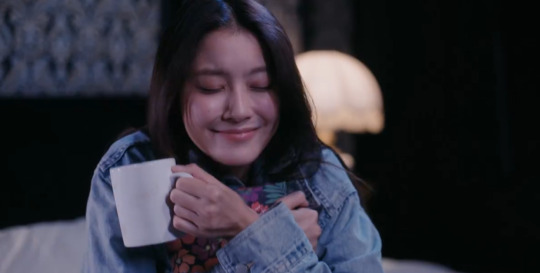
60 notes
·
View notes
Text
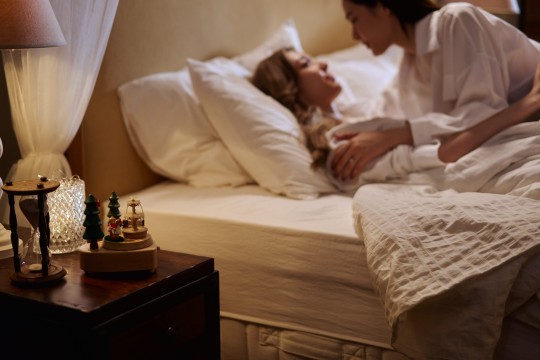
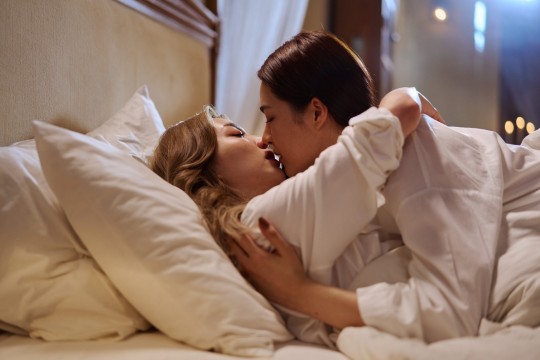
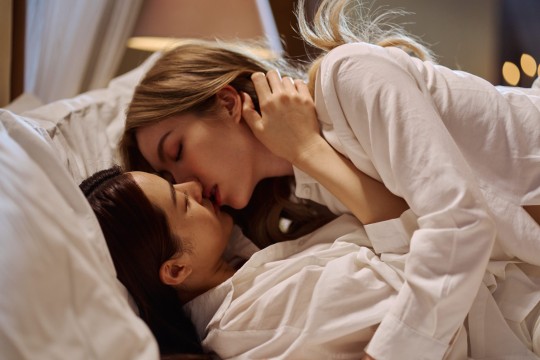
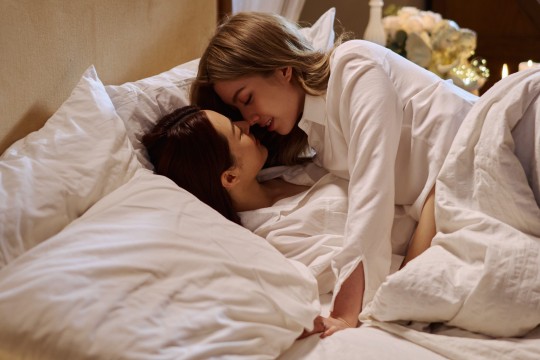
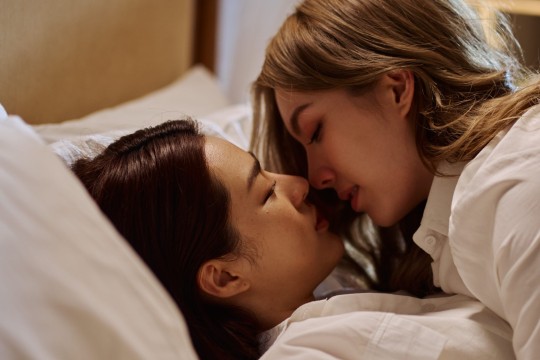
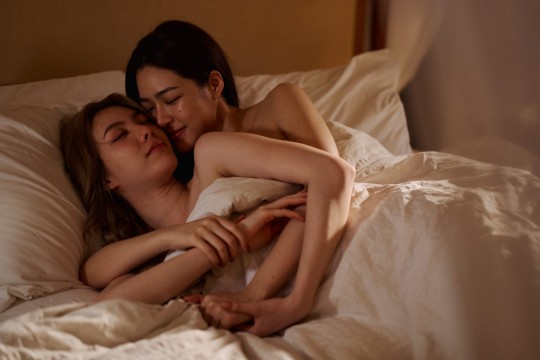
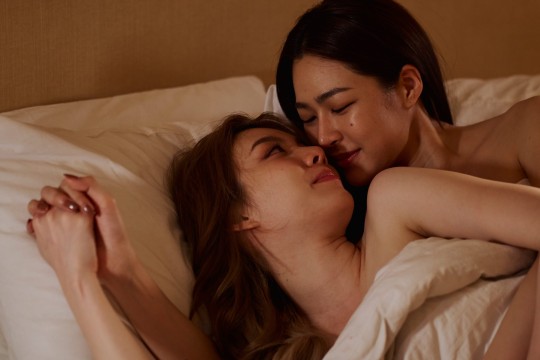
Fahlada and Earn
The secret of us series last episode.
319 notes
·
View notes
Text
The Secret of Us and the allegory of the puzzle...
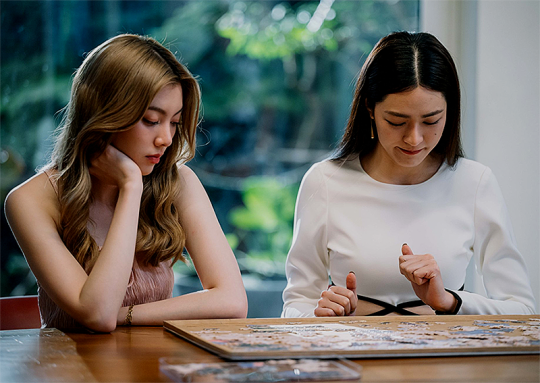
I think one of the major overarching themes in this series is that you cannot force something to fit where it doesn't want to belong. And the only way to 'complete' the picture, ideally, is to patiently allow the pieces to be put together in the way they're supposed to.
I really really want to talk about Lada and how much I resonated with her as a character. In order for me to do that, I have to explain some cultural insights that revolve around Lada's familial structure.
Funnily enough, I was recently discussing certain matrilineal cultures that exist in Thailand and how they perpetuate a lot of bigoted ideals... and that is shown beautifully in Lada's relationship with her parents and how they each react to her queerness. To me, it seemed clear that Lada's parents' marriage was born from matrilocal customs. And unfortunately, that's not really something you would be able to pick up on if you weren't Thai (or natively Asian in general). So... in these types of families, women hold a lot of authority, and that authority is passed on through the female line (which is why daughters are valued over sons). The wife would manage and have the final say regarding household matters, including how the children are raised... and the husband's duty would be to respect his wife. A mother and her daughter maintain a continuous relationship with one another as, should the daughter marry, her husband would come to stay with them until they have a family of their own (and sometimes even after). It's a good way to strengthen matrilineal kinship, but it puts enormous cultural pressure on the daughter who is raised with very high expectations... the most pressuring of which is to marry a man and to have natural born children. Should the daughter not 'fit' this mold, they are often ostracized from the family.
It gives new meaning to hearing Khun Russamee say, "Lada is the seed I've nurtured since birth," doesn't it? It's why she is so against accepting and understanding Lada and Earn's relationship. Because in her mind, there doesn't exist a future where two women can uphold these matrilineal customs... and so the only reason Earn must be pursuing Lada is for some form of exploitation (i.e. money). She justifies her cruel and queerphobic behavior to keep them apart as some form of misaligned protection of her daughter and her daughter's future... to keep her from being taken advantage of and to help her see reason. It doesn't excuse the behavior at all... but at least you can understand the motivation (no matter how terrible). These types of mothers exist in the reality of Thai society... it's not just some cliched villain narrative. I'm speaking from experience here (NOT MY MOM! I LOVE MY MOM... my mother's mother).
In Thailand, we hold strong to the notion of บุญคุณ ('bunkhun'). This notion perpetuates the idea that we owe an endless debt of gratitude to our parents. It's seen as our "moral obligation". (Similar ideas exist in other Asian countries, as well)
Lada has done everything right. She's loved and obeyed her mother, she's cultivated a successful career with intentions to take over from her parents' leadership of the hospital, she's set herself up to be able to support her family's needs... She cannot imagine a life where her mother could ever not support her or her choices. Her one "fault" is that she is in love with a woman and refuses to conform to her mother's insistent heteronormative intentions (I loved the juxtaposition of this against P'Nu's defeated acceptance btw). She's rightfully exhausted from all the pressure to 'fit' her mother's mold of the perfect daughter, and Earn recognizes that.
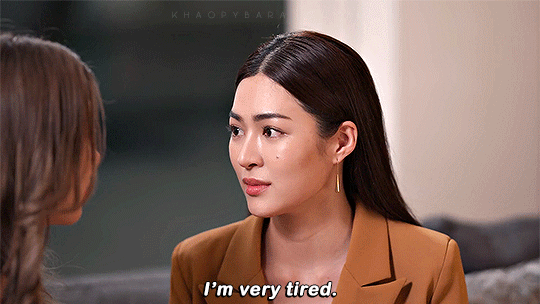
So when her mother falls ill, and Lada is expected to take responsibility, it makes sense from the perspective of her familial structure. When she sacrifices her happiness for her mother and Earn understands the reasons why... it makes sense. Khun Russamee only comes to believe that Earn truly does love Lada once Earn willingly steps away from their relationship to ease Lada's mother's expectations... it's twisted, but it makes sense. And Khun Russamee does apologize, for whatever the frik that's worth (I can only try so much guys 😞😞😞) It's just part of our ingrained culture to value family despite their abusive behaviors. And as much as I wish that weren't the case, these views remain an actual reality. So, it isn't dishonest to portray them.
...The point is, the final pieces of the puzzle could only come together once they were allowed to. And then we finally got our happy ending!!!
Could certain story elements stand to be improved? Yes... but they're no worse than anything we've seen from BL series. And I do believe as time goes on, with more and more GL content being made, the writing will get better and stronger (I hope 🤞🏾🤞🏾🤞🏾).
Despite the more problematic writing, Lingling and Orm were outstanding in their roles. Never have I seen two artists, in all of the Thai QL I've watched, be so in tune to their characters and their emotions. Everything from their dramatic scenes to their more subtle facial expressions were completely on point. It was a pleasure to witness... and the biggest draw for me as a viewer. Well done!!!
299 notes
·
View notes
Text
The Secret of Us and the allegory of the puzzle...

I think one of the major overarching themes in this series is that you cannot force something to fit where it doesn't want to belong. And the only way to 'complete' the picture, ideally, is to patiently allow the pieces to be put together in the way they're supposed to.
I really really want to talk about Lada and how much I resonated with her as a character. In order for me to do that, I have to explain some cultural insights that revolve around Lada's familial structure.
Funnily enough, I was recently discussing certain matrilineal cultures that exist in Thailand and how they perpetuate a lot of bigoted ideals... and that is shown beautifully in Lada's relationship with her parents and how they each react to her queerness. To me, it seemed clear that Lada's parents' marriage was born from matrilocal customs. And unfortunately, that's not really something you would be able to pick up on if you weren't Thai (or natively Asian in general). So... in these types of families, women hold a lot of authority, and that authority is passed on through the female line (which is why daughters are valued over sons). The wife would manage and have the final say regarding household matters, including how the children are raised... and the husband's duty would be to respect his wife. A mother and her daughter maintain a continuous relationship with one another as, should the daughter marry, her husband would come to stay with them until they have a family of their own (and sometimes even after). It's a good way to strengthen matrilineal kinship, but it puts enormous cultural pressure on the daughter who is raised with very high expectations... the most pressuring of which is to marry a man and to have natural born children. Should the daughter not 'fit' this mold, they are often ostracized from the family.
It gives new meaning to hearing Khun Russamee say, "Lada is the seed I've nurtured since birth," doesn't it? It's why she is so against accepting and understanding Lada and Earn's relationship. Because in her mind, there doesn't exist a future where two women can uphold these matrilineal customs... and so the only reason Earn must be pursuing Lada is for some form of exploitation (i.e. money). She justifies her cruel and queerphobic behavior to keep them apart as some form of misaligned protection of her daughter and her daughter's future... to keep her from being taken advantage of and to help her see reason. It doesn't excuse the behavior at all... but at least you can understand the motivation (no matter how terrible). These types of mothers exist in the reality of Thai society... it's not just some cliched villain narrative. I'm speaking from experience here (NOT MY MOM! I LOVE MY MOM... my mother's mother).
In Thailand, we hold strong to the notion of บุญคุณ ('bunkhun'). This notion perpetuates the idea that we owe an endless debt of gratitude to our parents. It's seen as our "moral obligation". (Similar ideas exist in other Asian countries, as well)
Lada has done everything right. She's loved and obeyed her mother, she's cultivated a successful career with intentions to take over from her parents' leadership of the hospital, she's set herself up to be able to support her family's needs... She cannot imagine a life where her mother could ever not support her or her choices. Her one "fault" is that she is in love with a woman and refuses to conform to her mother's insistent heteronormative intentions (I loved the juxtaposition of this against P'Nu's defeated acceptance btw). She's rightfully exhausted from all the pressure to 'fit' her mother's mold of the perfect daughter, and Earn recognizes that.

So when her mother falls ill, and Lada is expected to take responsibility, it makes sense from the perspective of her familial structure. When she sacrifices her happiness for her mother and Earn understands the reasons why... it makes sense. Khun Russamee only comes to believe that Earn truly does love Lada once Earn willingly steps away from their relationship to ease Lada's mother's expectations... it's twisted, but it makes sense. And Khun Russamee does apologize, for whatever the frik that's worth (I can only try so much guys 😞😞😞) It's just part of our ingrained culture to value family despite their abusive behaviors. And as much as I wish that weren't the case, these views remain an actual reality. So, it isn't dishonest to portray them.
...The point is, the final pieces of the puzzle could only come together once they were allowed to. And then we finally got our happy ending!!!
Could certain story elements stand to be improved? Yes... but they're no worse than anything we've seen from BL series. And I do believe as time goes on, with more and more GL content being made, the writing will get better and stronger (I hope 🤞🏾🤞🏾🤞🏾).
Despite the more problematic writing, Lingling and Orm were outstanding in their roles. Never have I seen two artists, in all of the Thai QL I've watched, be so in tune to their characters and their emotions. Everything from their dramatic scenes to their more subtle facial expressions were completely on point. It was a pleasure to witness... and the biggest draw for me as a viewer. Well done!!!
299 notes
·
View notes
Text
Lingorm chemistry test for The Secret of Us
564 notes
·
View notes







